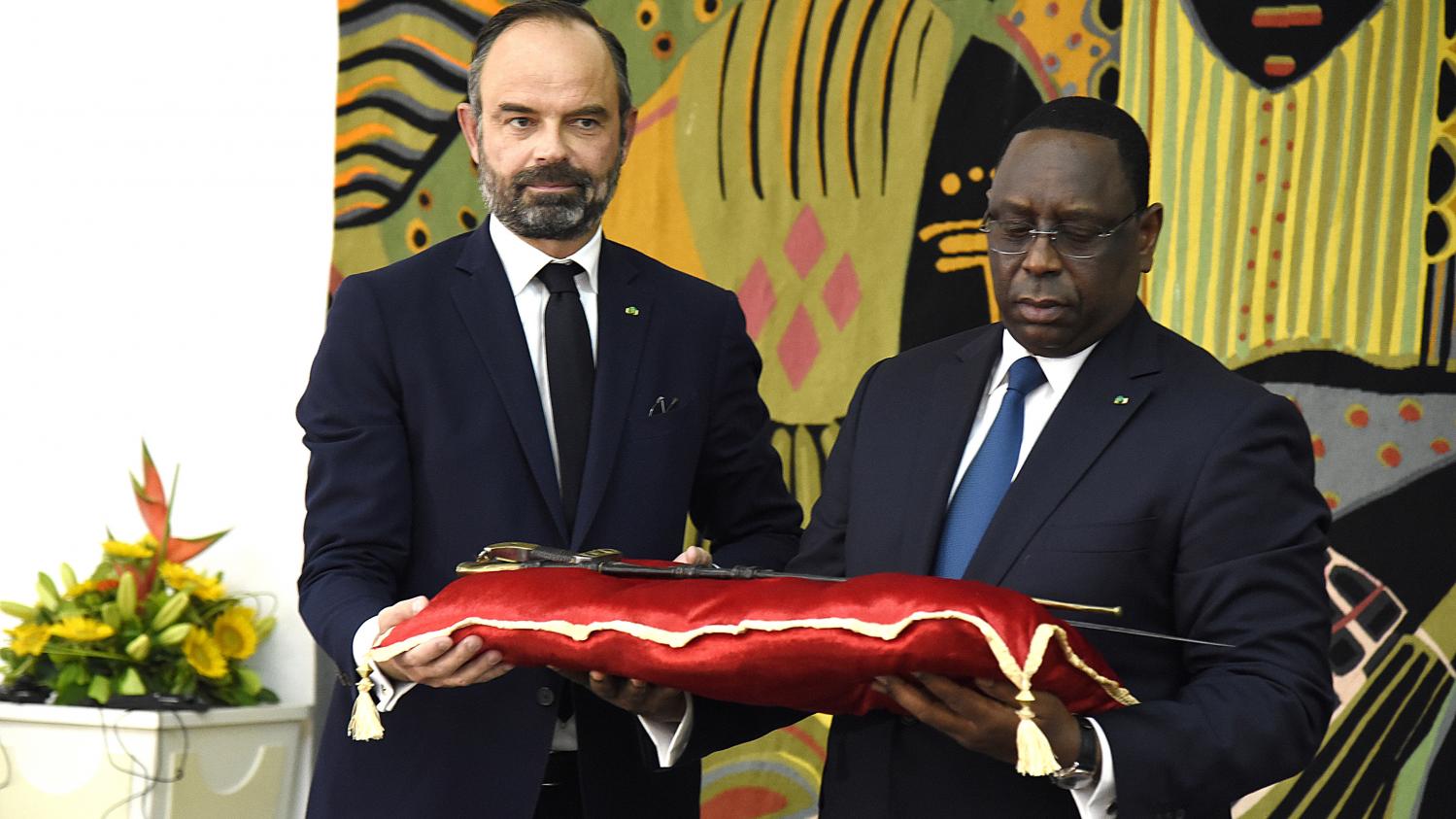France Returns Stolen 19th Century Artifact To Senegal


Thousands of artifacts left the shores of Africa during the colonial era. Some are currently on display in museums across several European nations. However, since the assumption of office, France President Emmanuel Macron has been under pressure to return stolen artifacts to their origin. Consequently, a commission was set up to facilitate this move. On this premise, El Hadj Omar Saidou Tall’s sword has been returned to the country.
The 19th-century sword belonging to the Islamic and anti-colonial leader was handed over to President Macky Sall of Senegal by the French Prime Minister, Edouard Philippe. The handover ceremony was in Senegal’s capital, Dakar. Present at the event were some of Omar Saidou Tall’s descendants. This is part of the move by France to return key cultural heritage to its former West African colonies. Consequently, in an expression of excitement, President Sall said through his official Twitter handle,
“I am delighted with the historical rendition of the El Hadj Omar Saidou Tall sword. A mythical symbol of the resistance of a great scholar. This restitution opens a new era, on the cultural level, between France and our States, as part of the repatriation of African heritage.”
Why Omar Saidou Tall is of historical significance
El Hadj Omar Saidou Tall was a political leader, Muslim scholar, and military commander. He led a West African Sufi order called the Tidjane brotherhood. For three years (from 1857 to 1859) he fought against French troops. However, in 1860, he signed a peace treaty. According to Senegalese historians, he mysteriously disappeared in 1864 from the cliffs of Bandiagara in Mali. In another account, Jean Suret-Canele, a French historian said Saidou Tall died of a gunpowder explosion.

Omar Saidou Tall was succeeded by his son Ahmadou (1836-1897). However, the French defeated him in 1893 in Bandiagara. It was after Ahmadou’s defeat that the French seized the sword. The saber has a French-made blade. The handle mimics the shape of a bird’s beak. The sword has iron, brass, and wood elements. According to a descendant of the Muslim scholar, El Hajj Mamadou Mactar Thiam, the French colonists also looted Tall’s books. Speaking to BBC Afrique, Mr. Thiam said,
“They took everything, including his library, in Segou. I hope that all our books that are now in France will be returned to us.”
ALSO READ: Senegal’s Museum of Black Civilizations is open, asking the West to return stolen treasures
The complexity in the return of stolen artifacts
Returning stolen artifacts like that of Omar Saidou Tall is not as straightforward as it sounds. The first step the commission established by the president took was to examine museum inventory and determine what belongs to Africa—but that is the easy part. According to the commission, there were about 5,142 objects in France’s Quai Branly-Jacques Chirac Museum with Senegalese origin. About 2,000 of these items were photos and pieces of pottery. Other items include textiles, masks, statues, and fishermen’s nets.

The main challenge in front of the commission was distinguishing between loot and regular purchase. Also, in instances of purchase, they have to understand the “degree of asymmetry in these purchases”. Some European countries are also reluctant to return stolen artifacts citing the state of African museums. According to the report of the presidential commission in 2018, there are at least 90,000 pieces in French museums from Sub-Saharan Africa. However, Paris’ Quai Branly museum alone houses at least 70,000 of these works.
ALSO READ: U.S. Official Returns Historical Collections To Liberia National Museum
Omar Saidou Tall’s sword has been in Dakar’s museum on loan from France. The handover ceremony marks its official return for a period of five years. Following the temporary restitution, French MPs will have to vote to decide if the return will be permanent.







Responses